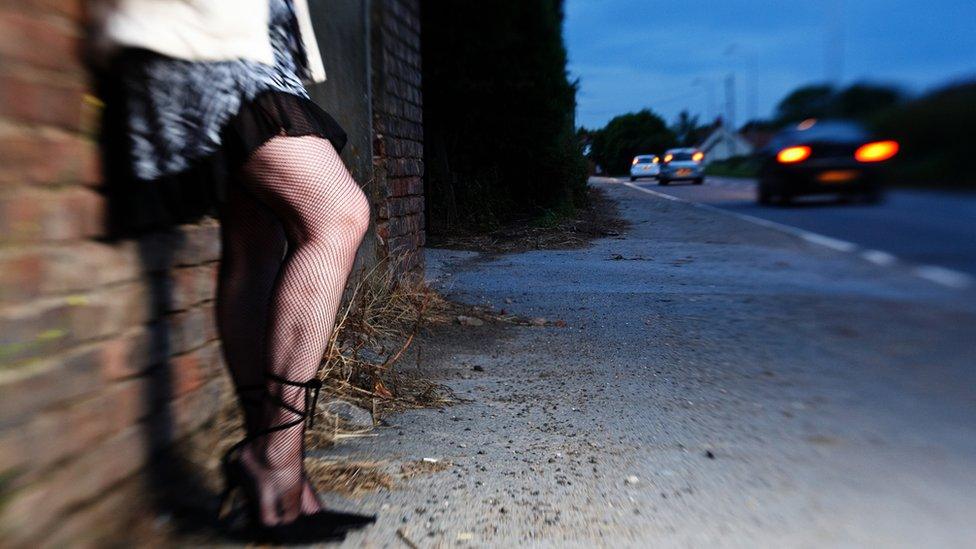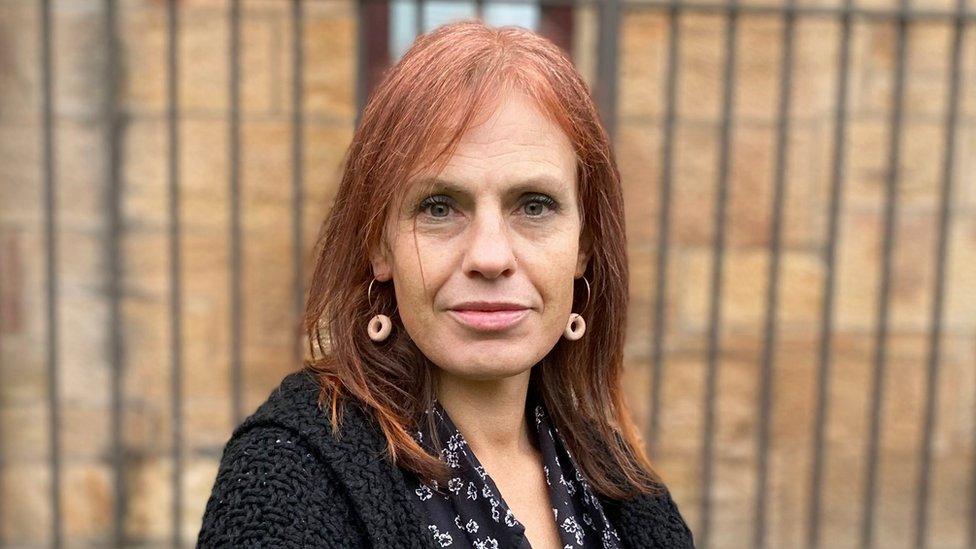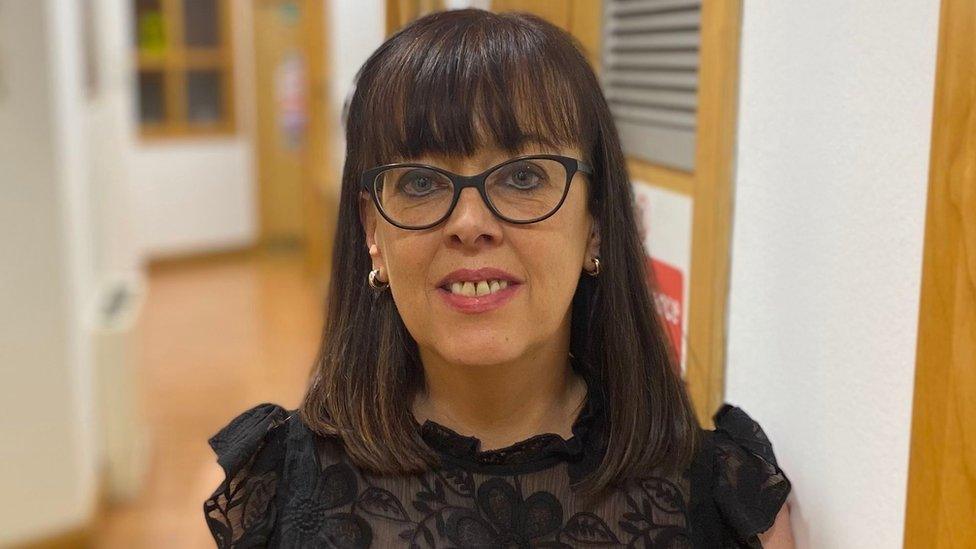Does Scotland need to change its laws on prostitution?
- Published

The "Nordic model" decriminalises the sale of sex while targeting the buyers
A 12-week Scottish government consultation, which has just ended, called for views on how best to protect women involved in prostitution.
At present, soliciting in public, "kerb crawling" and brothel-keeping are illegal.
The government is to decide whether to adopt the "Nordic model".
Introduced two decades ago in Sweden, the policy decriminalises the sale of sex but targets the buyers of sexual services.
Proponents argue that it would make Scotland less attractive to traffickers, while targeting the demand for sex work.
However, some sex-workers' groups claim the policy increases the risk of violence and leads to a reliance on more dangerous customers. They argue that full decriminalisation, better financial support and workers' rights would better serve those involved in prostitution.
BBC Scotland's The Nine spoke to those involved in sex work, as well as those helping women to exit the industry.
'We could be in a dangerous situation'

Claire is 28 and has been involved in sex work for four years. It started due to financial difficulties, illness and unemployment.
She told The Nine that she does not have a "rosy view" of prostitution and sees it as a "means of survival".
She is concerned about any move to criminalise the purchase of sex.
"It will be more difficult to check client information if they are less inclined to give their name because they fear criminalisation," she said.
"With a reduction in demand, you're more likely to accept bookings even if you know they might be dangerous. It's that or you don't have money for your bills or to put food on the table."
'Men who buy sex need to be held to account'

Linda Thompson is in favour of criminalising the purchase of sex
Linda Thompson heads the Encompass network, a number of frontline agencies helping women involved in sex work.
She is in favour of criminalising the purchase of sex and protecting those involved in prostitution - many of whom suffer poor mental health or addiction issues.
She told The Nine: "We have to question and hold to account the men who freely choose to buy women in the sex industry.
"And also the men who exploit whatever vulnerability is there, whether that's economic, poverty, or women who have little or no alternative options."
'Women need meaningful financial support'

Anastacia Ryan favours full decriminalisation
Anastacia Ryan, of sex workers advocacy project Umbrella Lane, is against the Nordic model.
Instead, she favours full decriminalisation, with wraparound support for women.
She said: "It's an extremely simplistic argument and easy get-out for the government.
"They are talking about women's poverty, issues around things like problematic drugs abuse and reducing that to just demand [for sexual services]. What women need is meaningful financial support."
'Some men treat us as a customer service'

RoseAnn Cameron says many of the women they help suffer extreme violence
Routes Out is a council-funded organisation that has supported street sex-workers in Glasgow for 30 years.
Service manager RoseAnn Cameron says many of the women they help suffer extreme violence.
She also said some men were so open that they treat the organisation as "a customer service", trying to get money back if they are dissatisfied.
She said: "It is often said that it's a quick way to make money, but never an easy way.
"No-one I am aware of looks at it as a career choice, a job or work. It is driven by survival behaviour."
'Why has society turned a blind eye for so long?'
Community Safety Minister Ash Denham MSP has previously advocated for laws targeting the demand for sex work.
She said the consultation was intended to start a conversation on how to protect women involved in prostitution and will explore various options.
"Why is it that society has turned a blind eye to prostitution for so long?" she said.
"This is the first time we have had a national consultation on prostitution.
"I personally would like to think in the future we will be able to live in a society in Scotland where women and girls are not harmed or exploited in prostitution."
Any proposal to change the law would have to be considered by the the Scottish Parliament following next year's election.